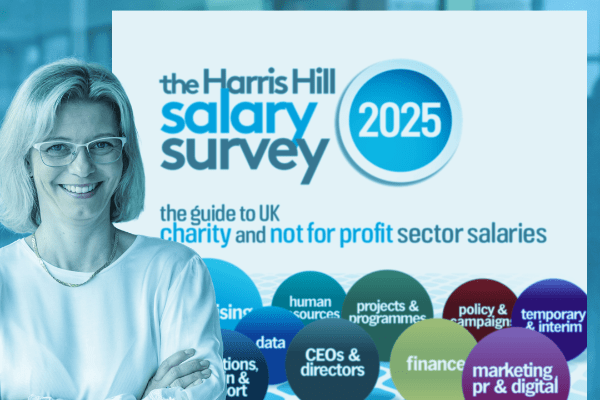In part two of our guide, Jenny Hills looks at what to say when you don't have the competency in question, and how to bring out your personality, values and vision for the future, even if the questions focus firmly on your past...

Bringing yourself to the interview
One of the risks of a competency-based interview is that they can seem a little formulaic for both panel members and candidates. On the other hand, one of the best things about working in the charity sector is that we really care about the work our organisations do, the impact and the people.
Recruitment panels want to get to know what makes you tick as a person. Sometimes, you will be asked directly about your values or personal qualities: “How have you demonstrated our charity’s values of x, y and z”? However, don’t wait for a direct question like this to come up to show you who you are.
You can avoid the risk of your answers appearing to be 'by the book' by showing your enthusiasm, your values and your personality and self-awareness, and thread these throughout your answers.
Here are some examples of how to weave these in:
• “It’s important to me that everyone feels included and valued in my team, and so I…”
• “This was causing tension in the team, and while my preferred management style is to build consensus (which has previously manifested as conflict avoidance), I made sure to tackle this head on by…”
• “What drives me most is delivering justice for our communities, and I built this into our service design process by…”
We’ve seen candidates ace questions by being really honest about the limits of their experience, giving example of where things didn’t quite work perfectly and being very clear about what they learnt from it.

How to answer a tricky question
There will probably be things on the job description or person specification that do not play to your strengths. That is totally fine – there is no perfect candidate for any job, and if you weren’t a strong candidate for the role, you wouldn’t be invited to the interview.
So, you’re asked about that one thing you haven’t done before or aren’t quite sure of. Don’t panic! The trick to answering a tricky competency-based question is to give your best (most relevant) example, and then demonstrate an awareness of the development points for you and how you are going to tackle them.
Let’s say you are a fundraiser going for a new role. The person specification says you need knowledge of the Raiser’s Edge CRM but you have only ever used the Salesforce system. However, you were the internal lead in implementing a major update and supporting your colleagues in adopting the new system.
When asked about your experience in fundraising CRM systems, in your answer you can highlight how quickly you got up to speed with this new system, how you made sure the functionality worked for your team and supported them to use it. You can then tell the panel, “I know you use Raiser’s Edge here, and while I have not used that CRM before, I’m confident that I will be able to grasp the system quickly, as I have already watched a number of introductory and tutorial videos on YouTube and it doesn’t seem too dissimilar. I’d be happy to do further training ahead of my start date to ensure a smooth transition into the role”.

Taking your answers further
If you’ve researched the organisation and have a clear idea of what you want to achieve in the role, competency-based interviews can be frustrating, as the focus is on your past, not what you will do in future.
There isn't always a natural place in the interview to share your vision and plans for the role, but you can bring them in by linking to your past experience.
Let’s say in your current role, you have had great successes in bringing in younger donors, and you know a key part of this new role is to reach new audiences of potential funders. Give your STAR answer when asked about your experience of diversifying the donor base of a charity, and talk them through how you brought on younger donors. Then you can tell the panel (concisely) that you feel a similar plan could work at this charity, and while this aspect of what you did might not be relevant, these steps and that type of messaging are likely to be similarly effective in this role too.
This shows that beyond a competency match with the role, you have really done your research into them as an organisation, and thought through what your experience can add in this new role. That kind of preparation shows you are genuinely interested in them and their work, which always leaves a favourable impression on a recruitment panel.
Don’t feel the need to do this for every question, but if delivering on this one thing is a major point of interest for you in the role, and/or it tackles an issue you know the organisation is facing, it's always helpful to add this to your answer for the relevant questions.

So to summarise, there's nothing to fear from a competency-based interview, and plenty to welcome. It’ll be fair and objective, assessing your experience against requirements, and since you can anticipate the questions, you can prepare and structure your answers in the most effective way.
And while the questions may ask for little more than a list of what you’ve done, you can use them – with these methods and some wisely-chosen examples - to give the panel a far more rounded picture of who you are, showing them what you'll bring to the organisation when you're ultimately working in the role.
Jenny Hills, Chief Executive & Director Recruitment Practice, Harris Hill
If you haven't already, you can read part one here, while for more advice on forthcoming interviews or executive-level requirements, you can reach Jenny Hills on 020 7820 7321 or via email to this address. | | | |
-

Opportunity for all
Find out how we’re working to deliver more diverse, equitable and inclusive recruitment…
-

Recruiting a charity CEO?
Our executive recruitment specialists have an exceptional record of successful CEO, chair, trustee and…
-

Charity sector salaries
Our 2025 Salary Survey has the latest rates and expert insight for roles throughout the sector.













